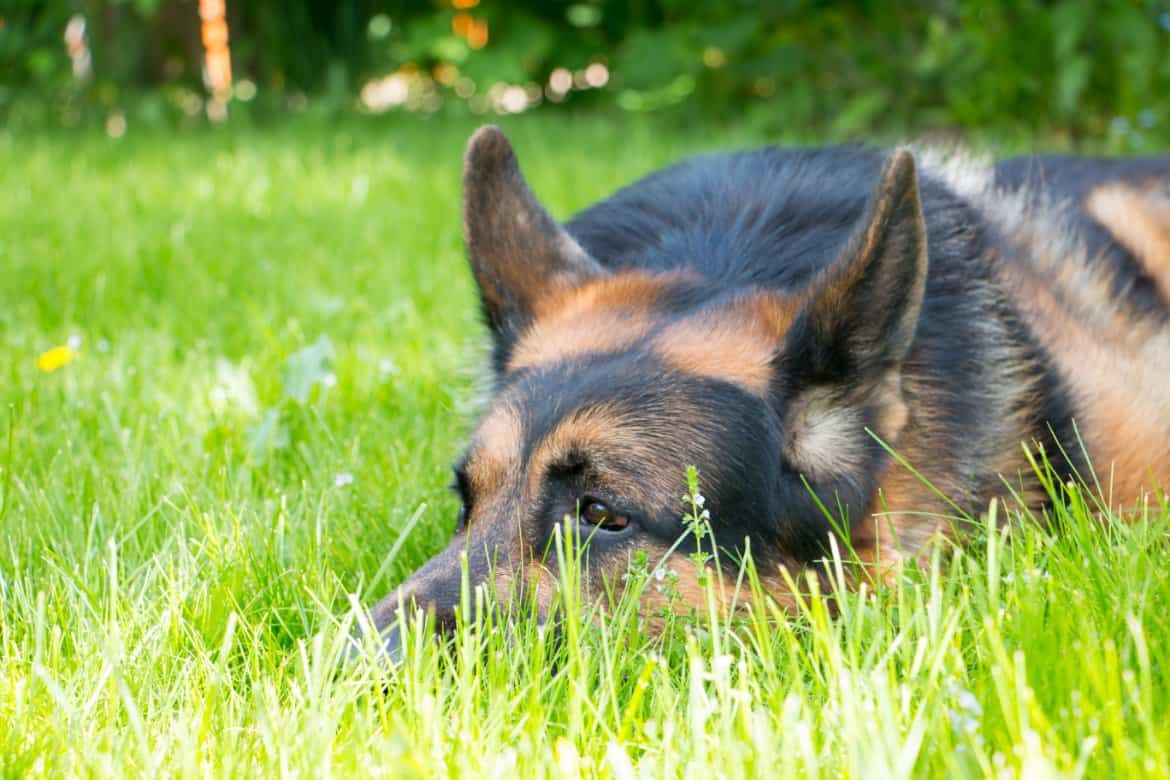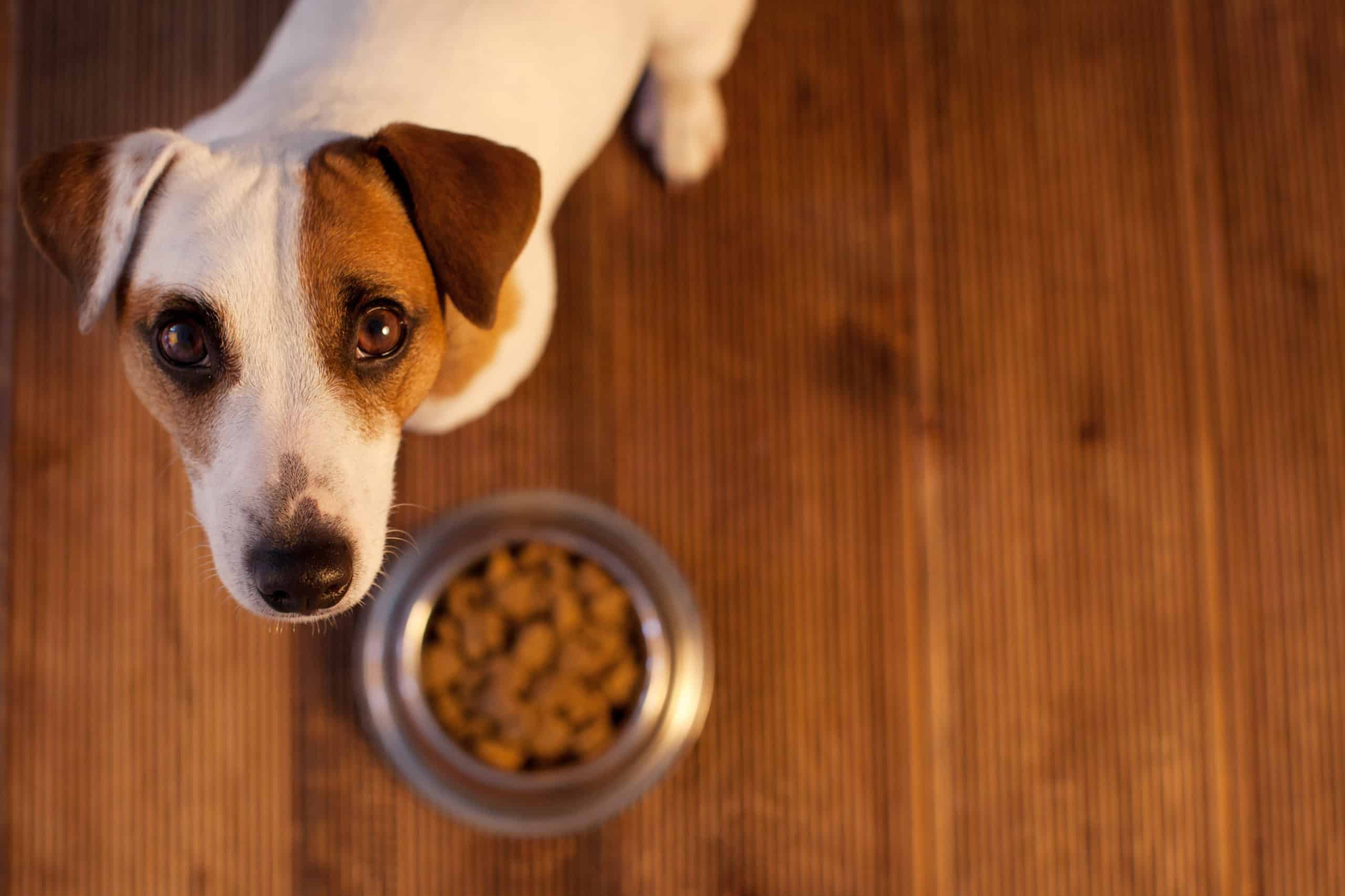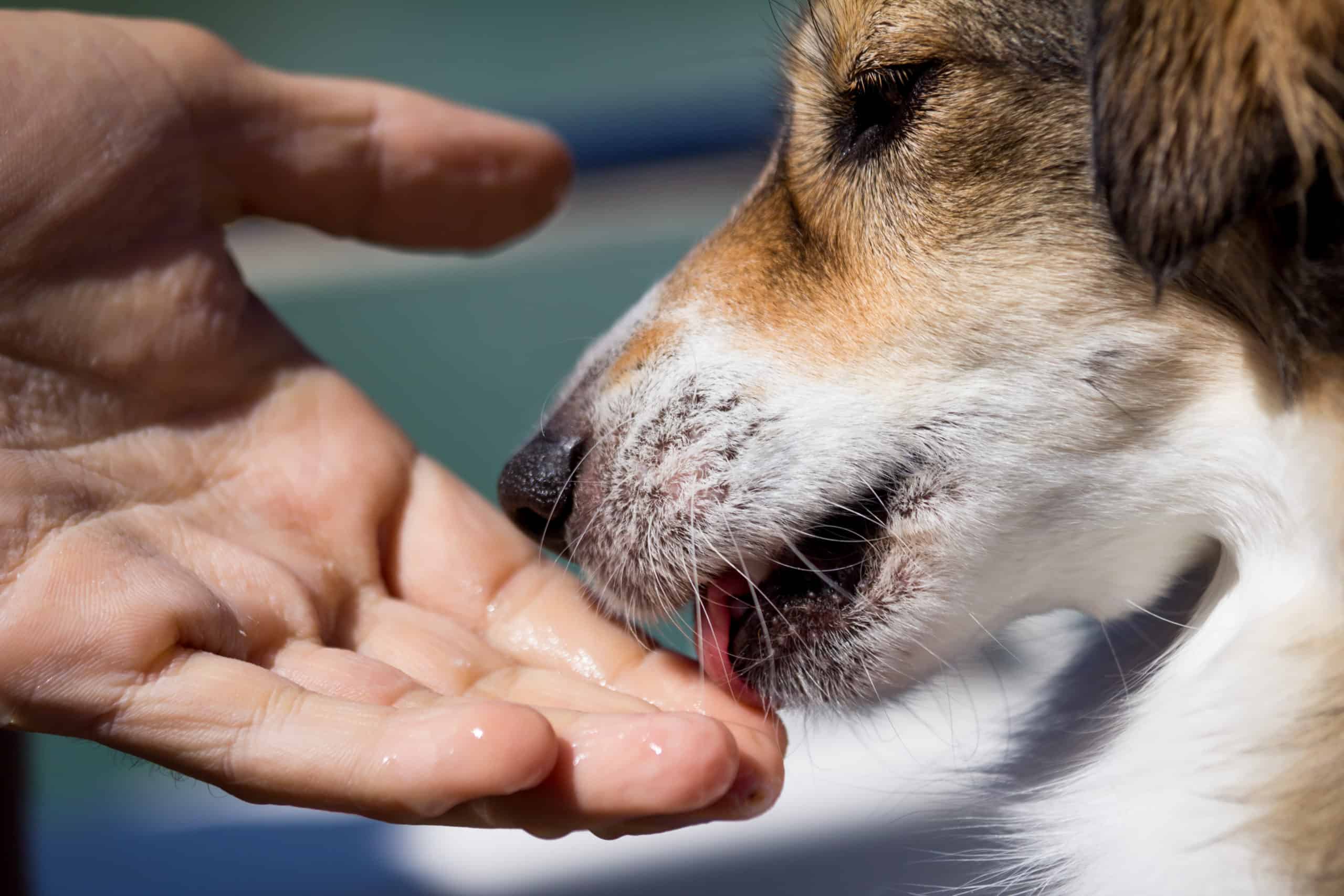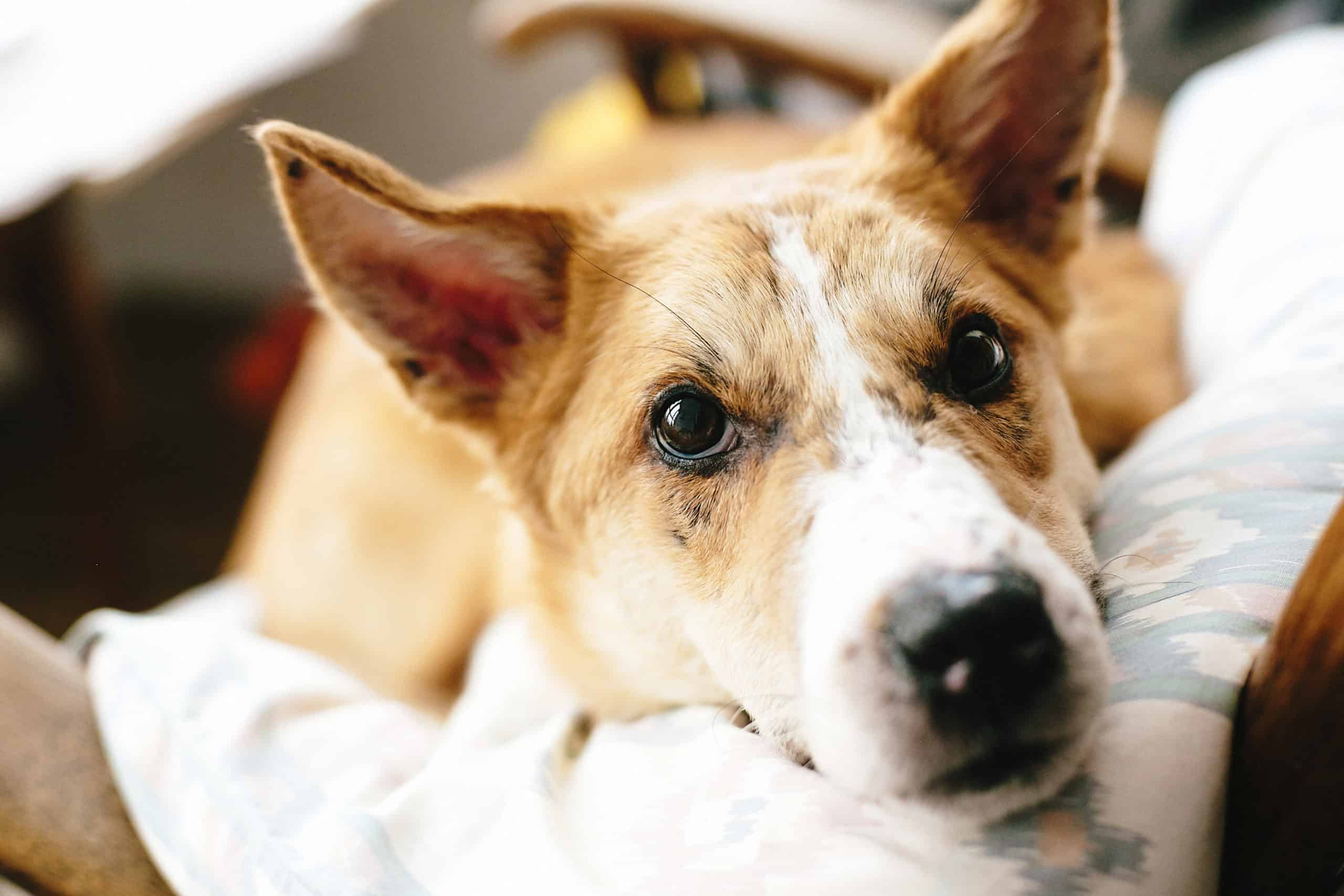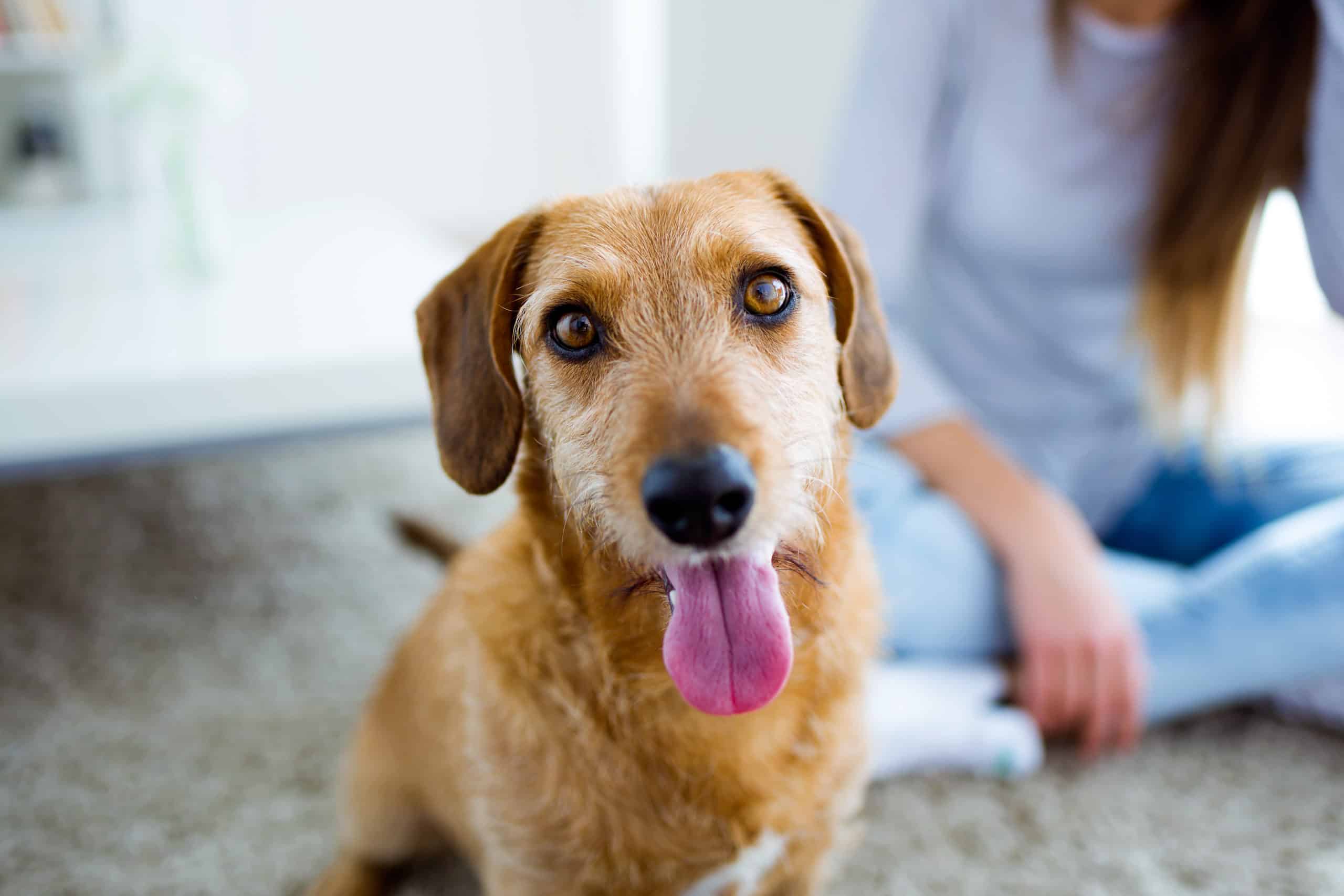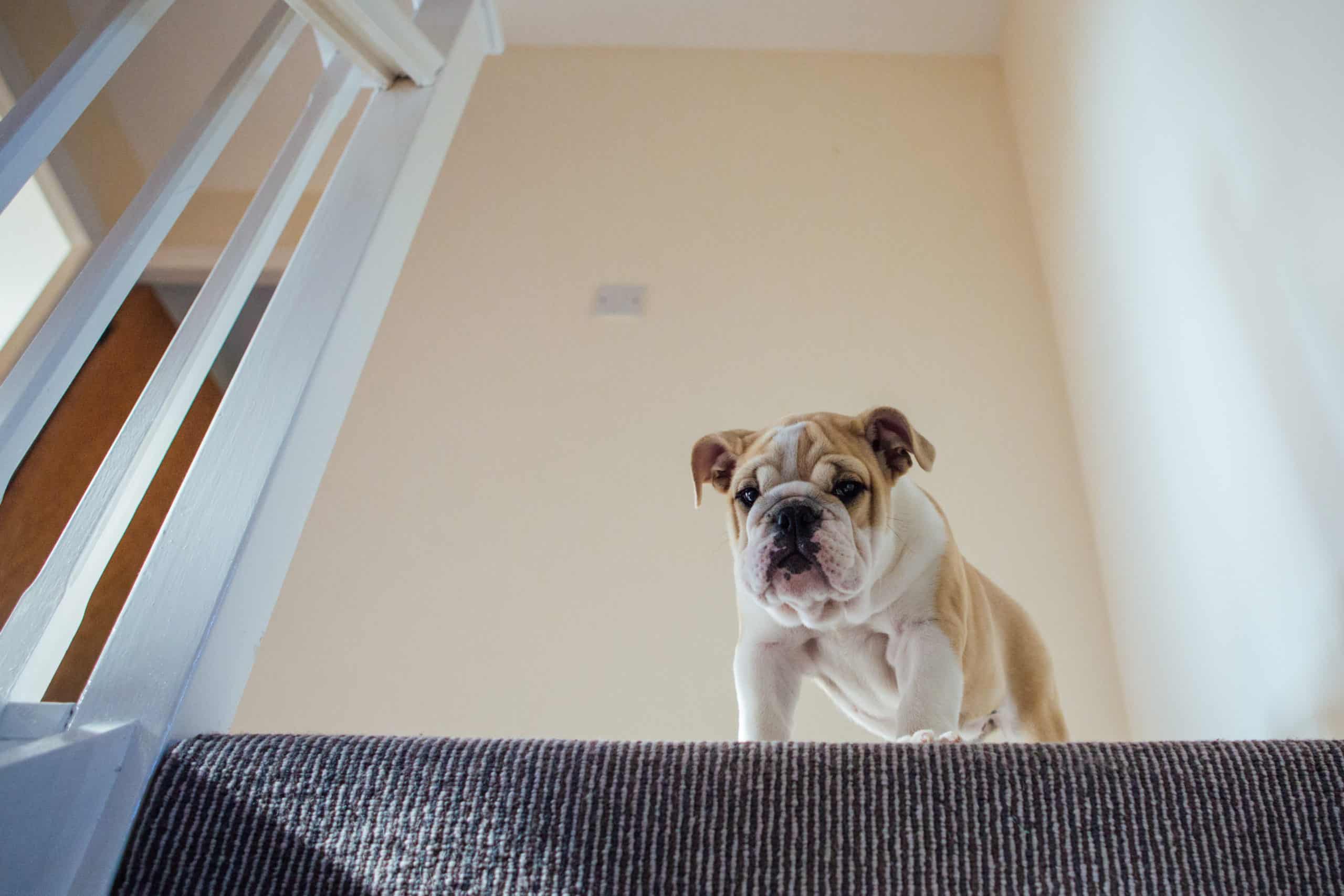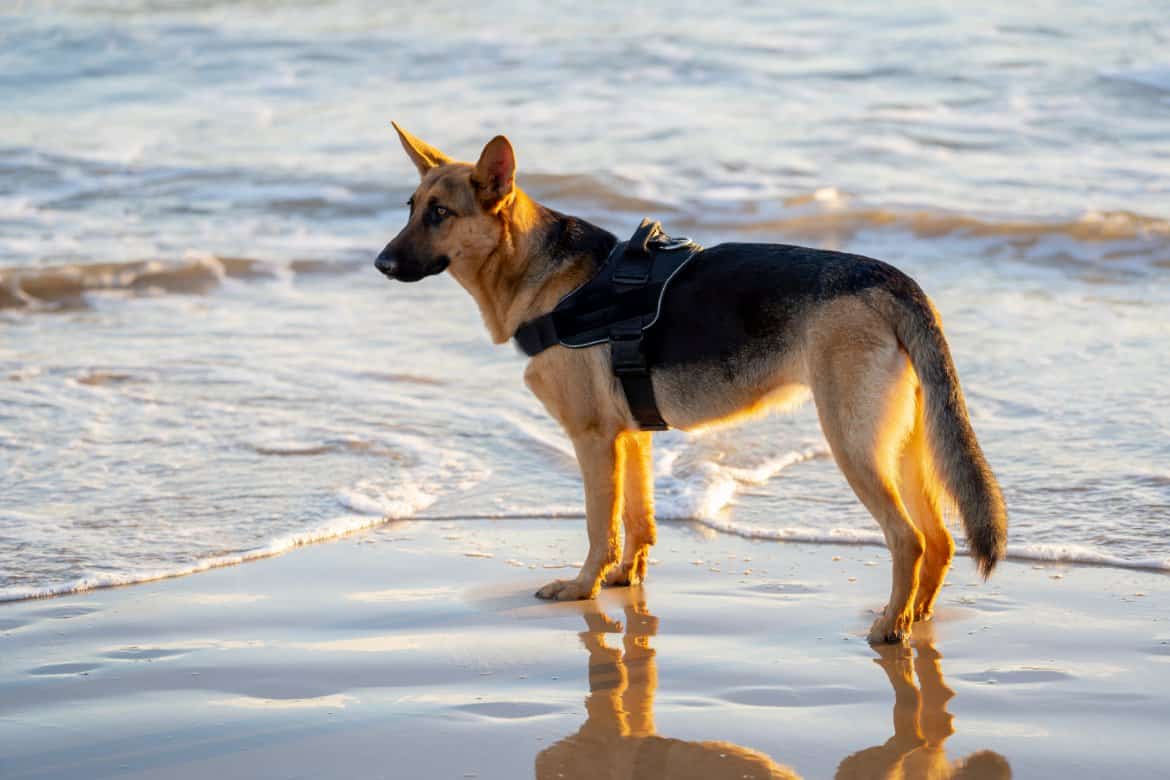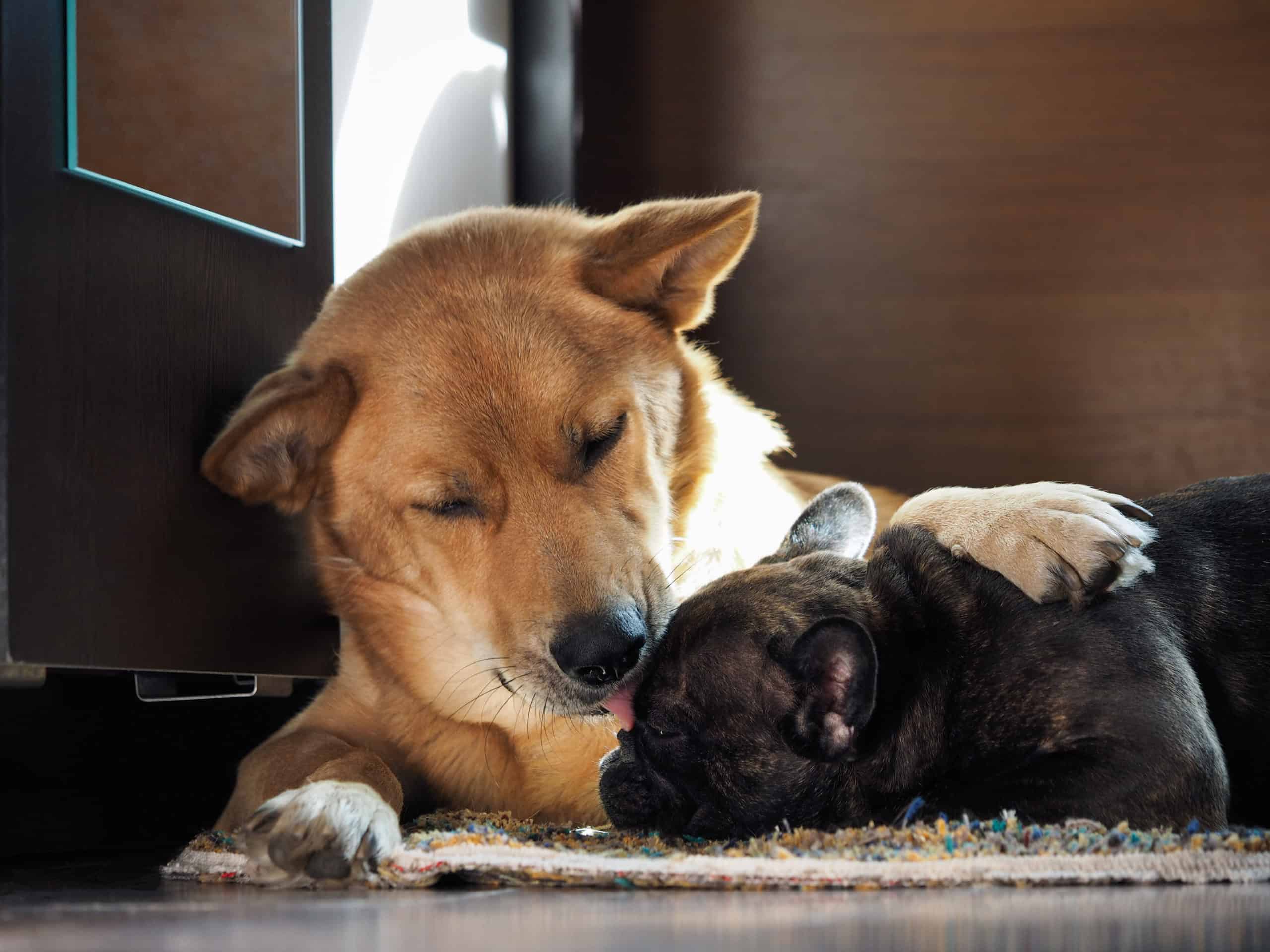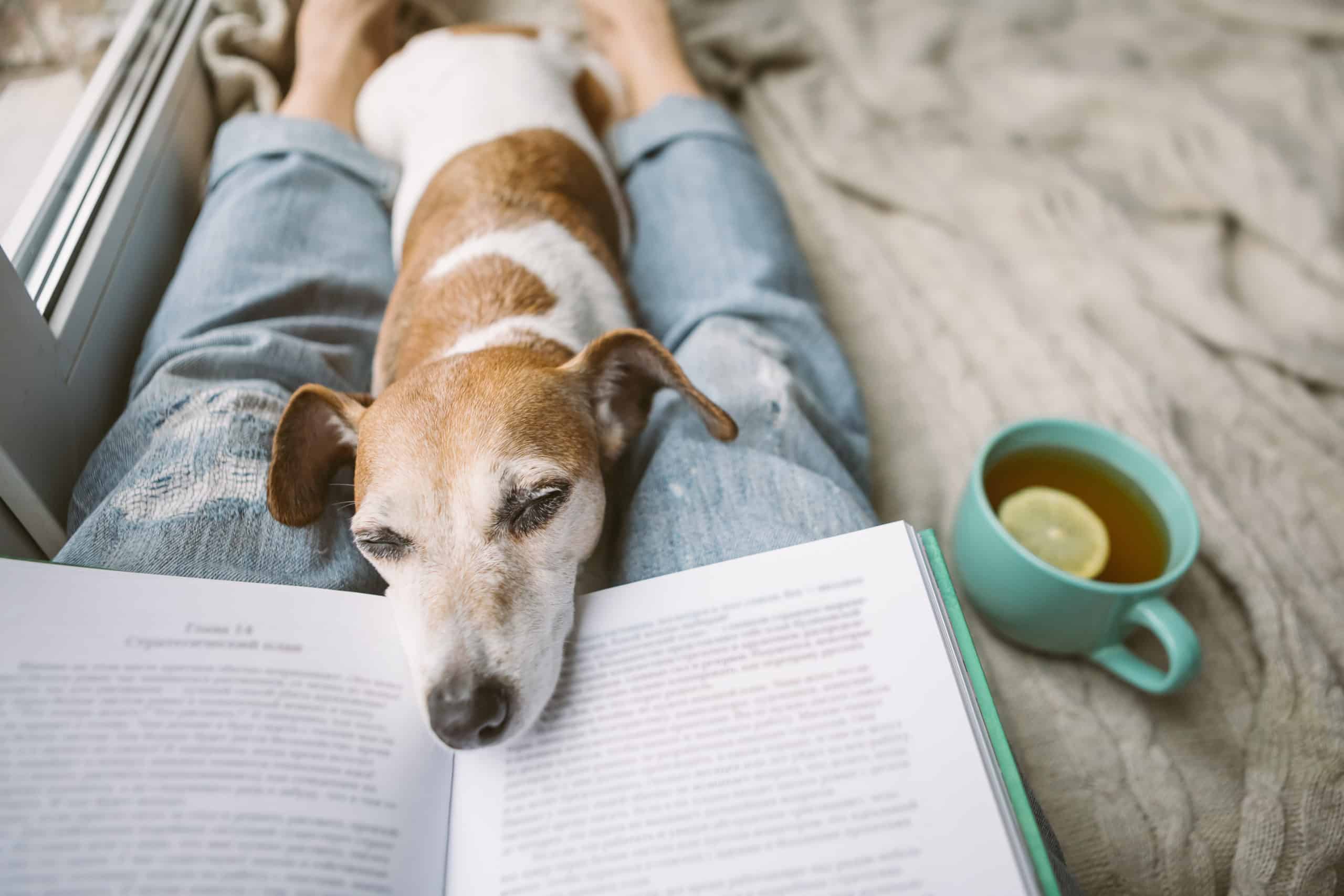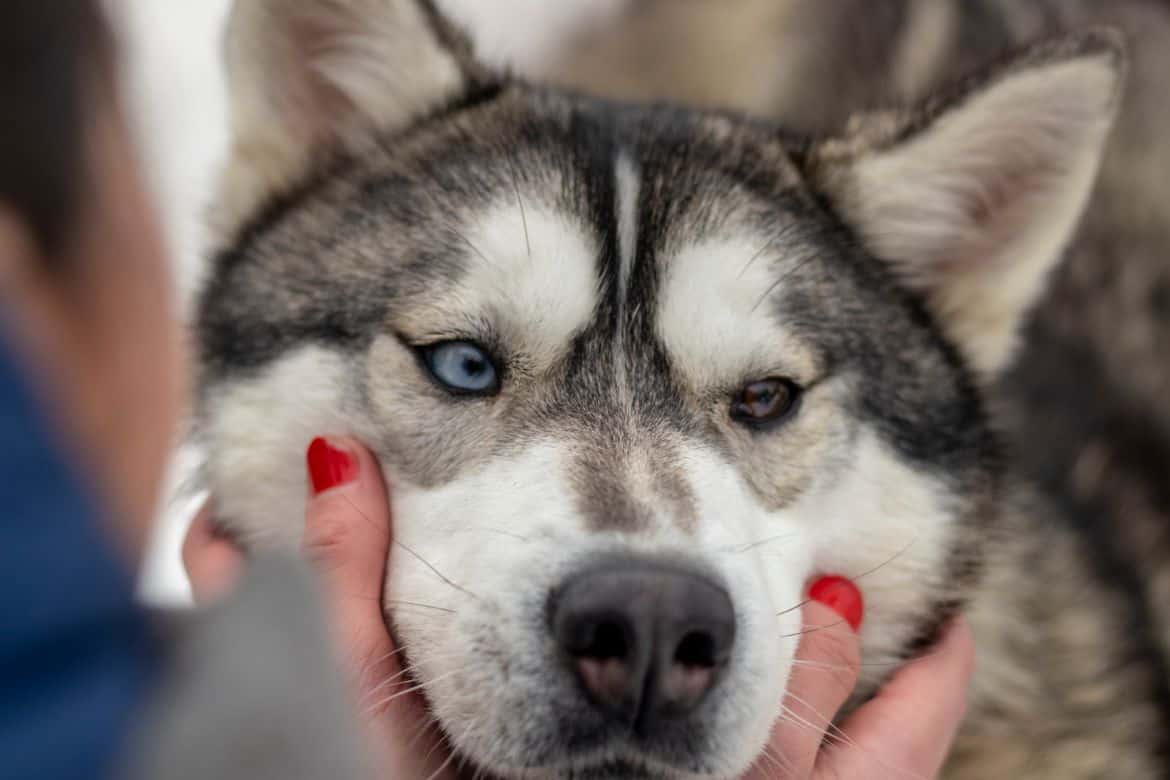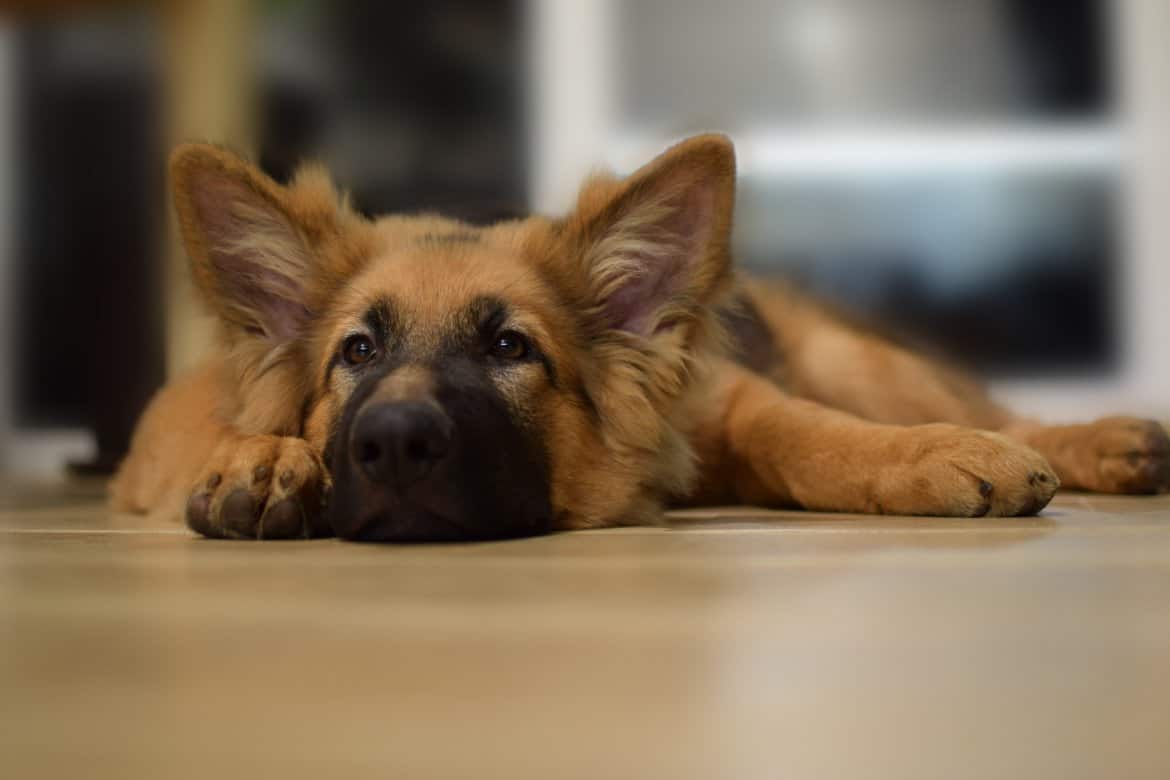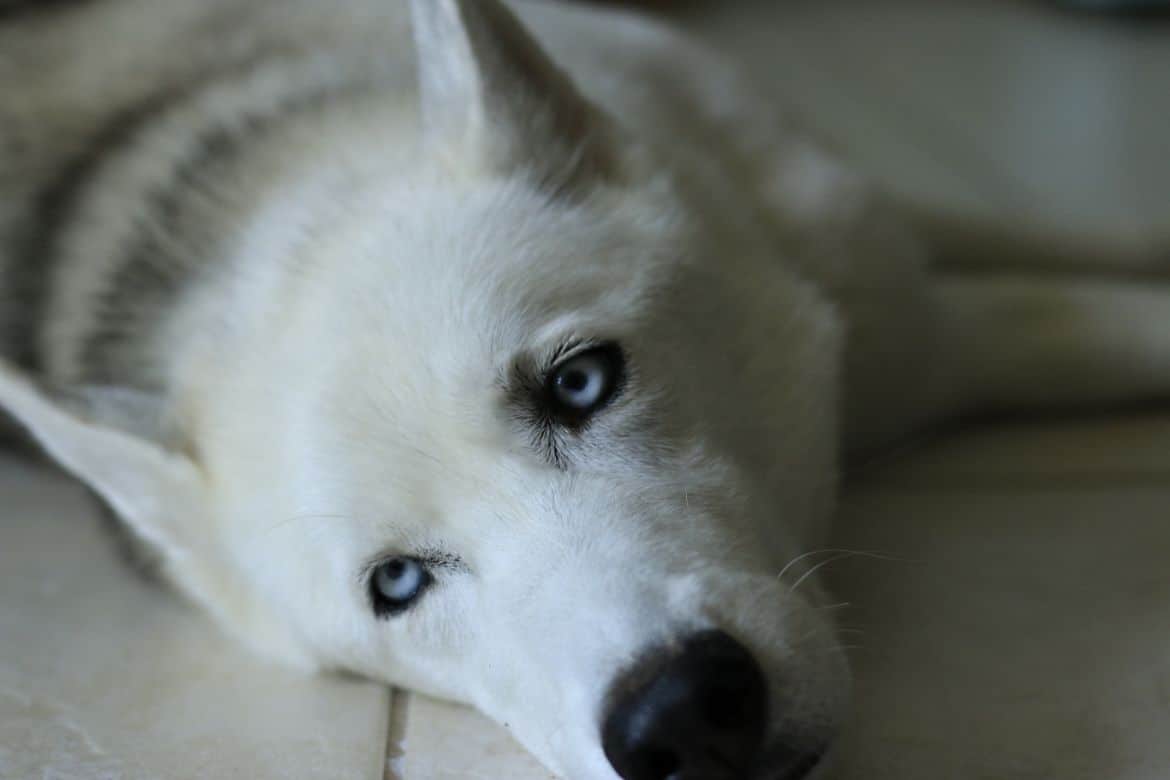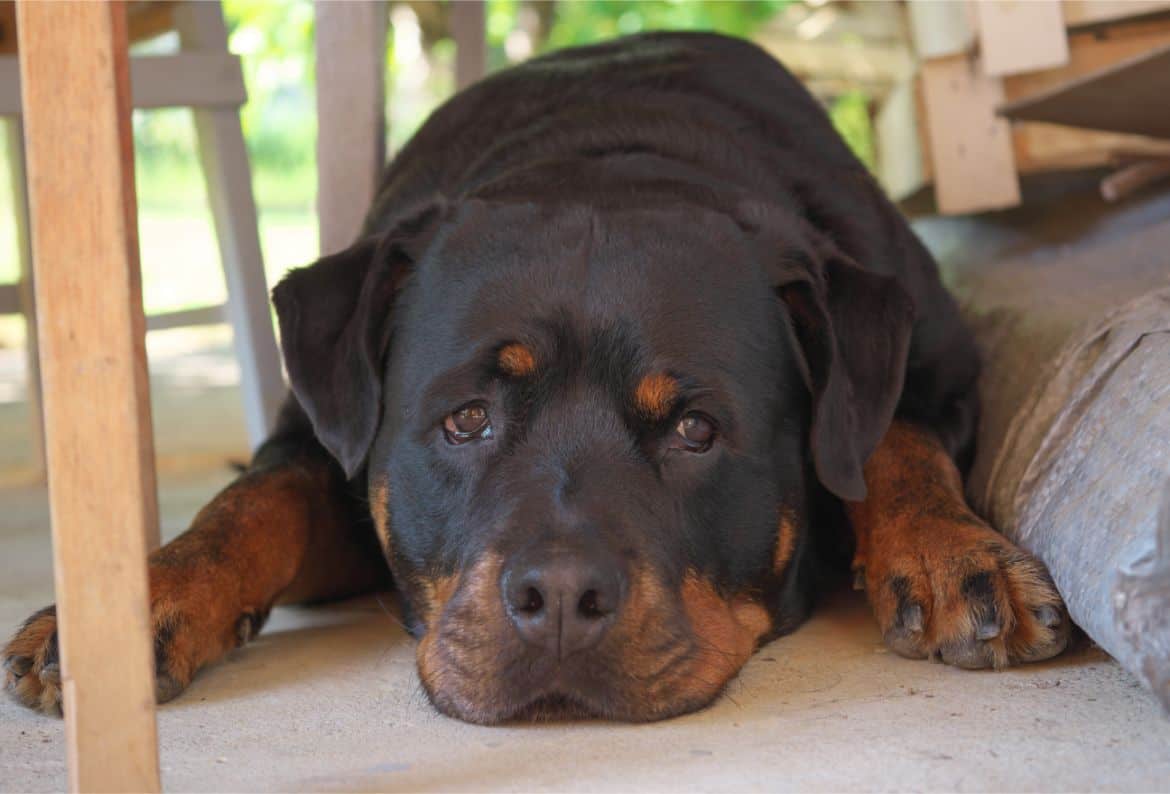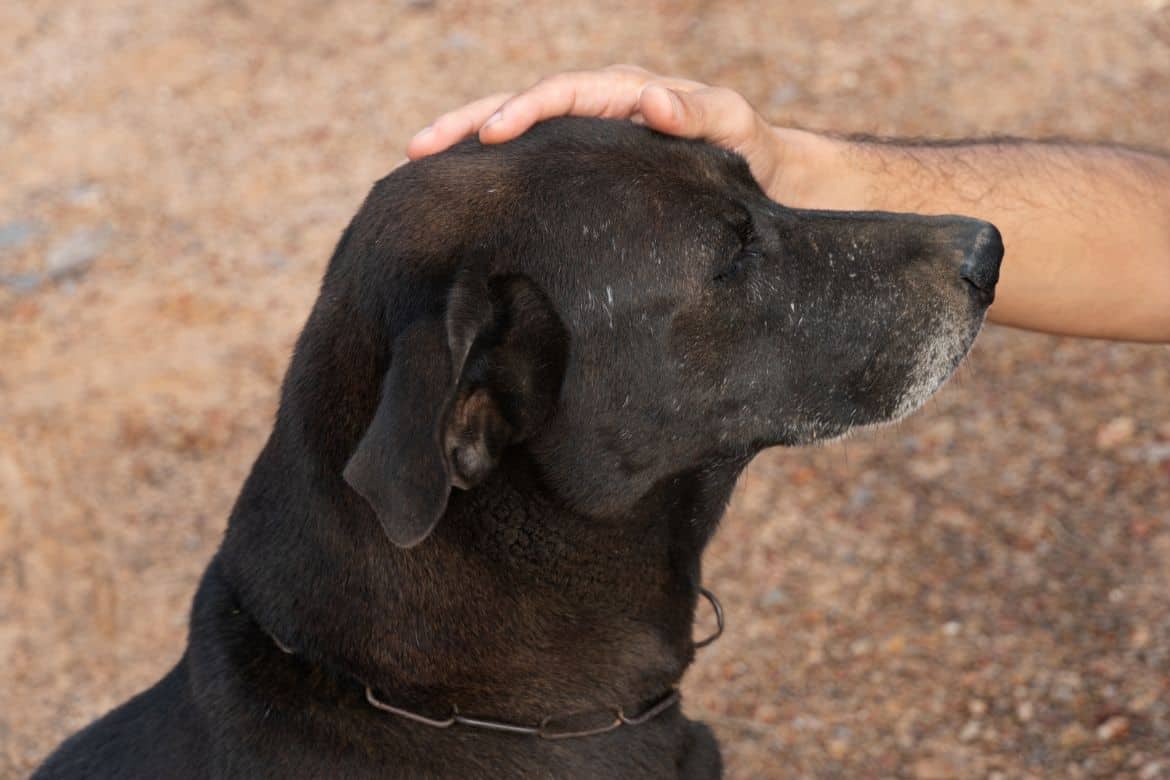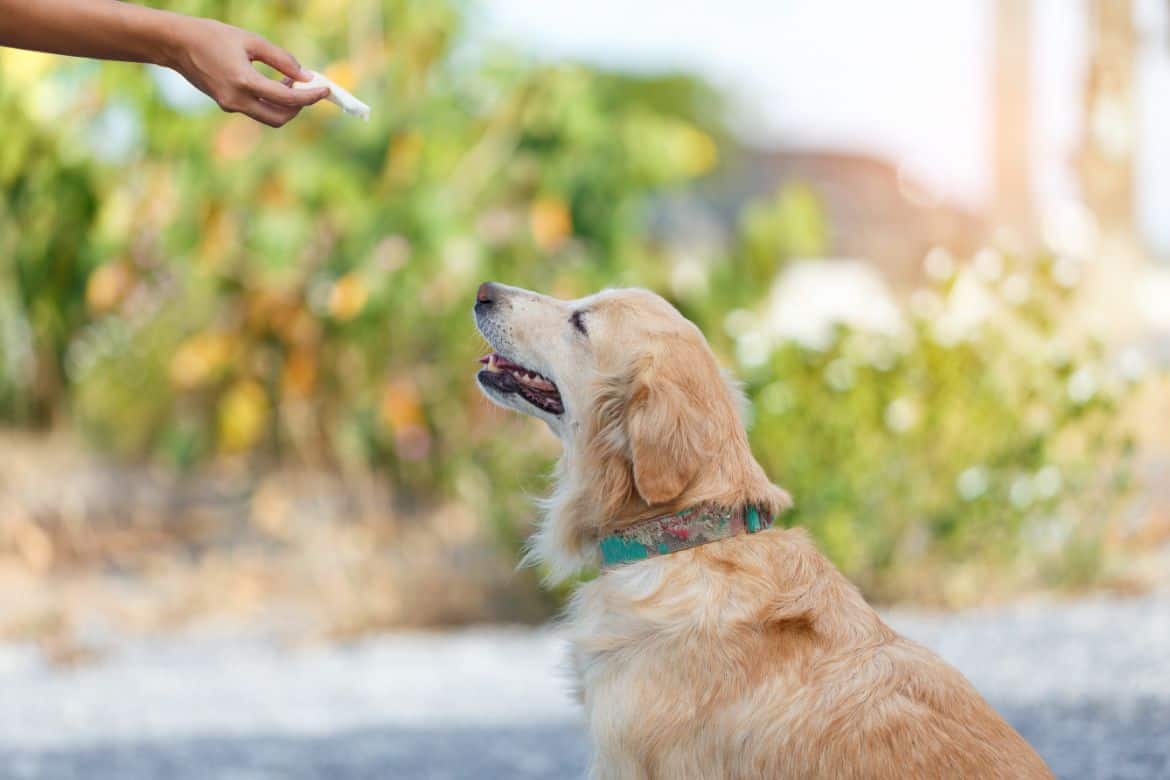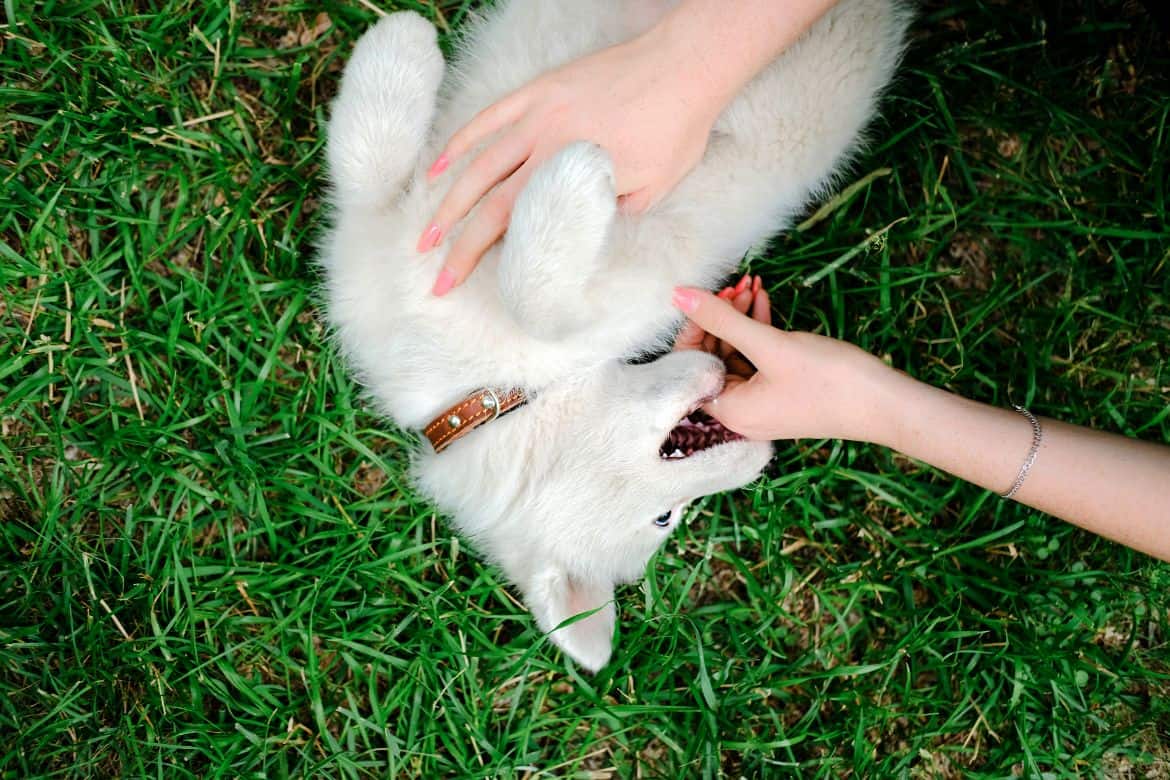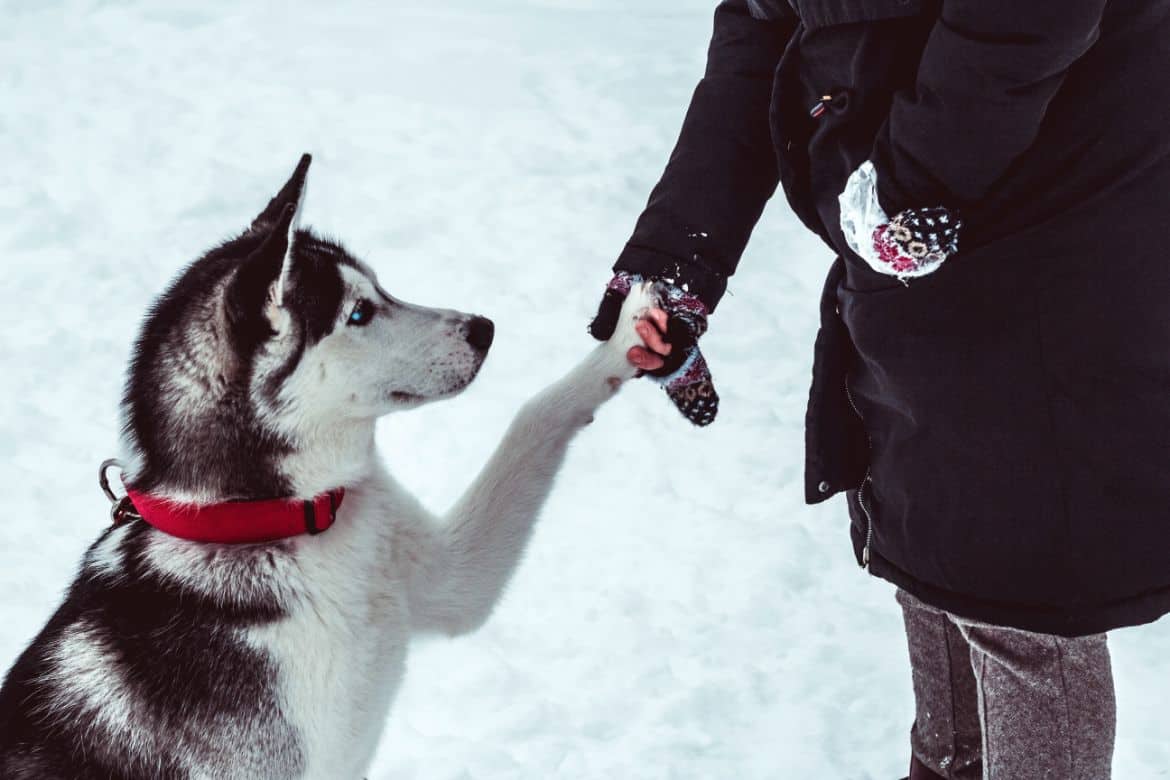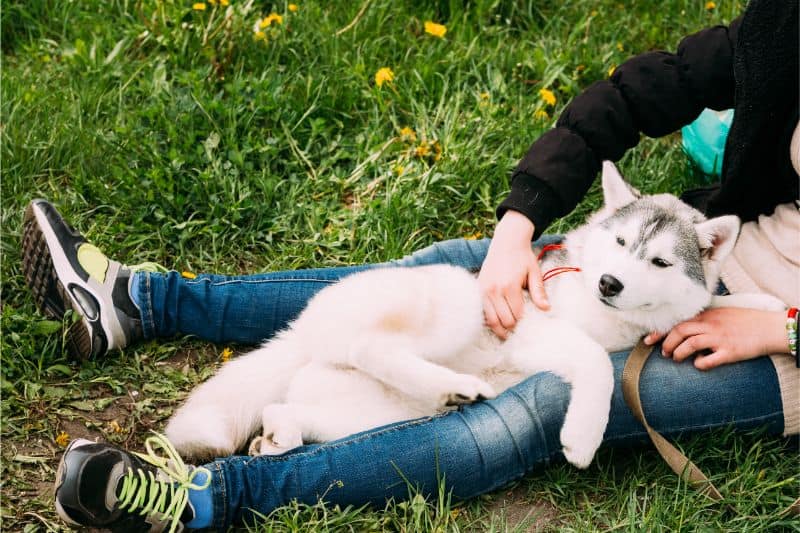We didn't find the posts for that URL.
Latest Posts
Miniature or teacup Cane Corsos certainly sound appealing. Cane Corsos are known for being excellent guard dogs. They are loyal and calm, which makes them a popular choice for dog lovers. However, their large size means they aren’t right for everyone. Miniature and teacup dogs are a great choice for those who live in smaller …
Read More about Miniature/Teacup Cane Corso: Facts, Details, Pictures
Castor oil is a natural remedy many people use for constipation, skin problems, and a variety of other health issues. Its use is a bit controversial, but the FDA says it’s safe for short term use in humans. However, this doesn’t mean it’s safe for your pooch. Dogs have different systems than humans, so is …
Read More about Dog licked castor oil (What happens? What to do?)
Does your dog lay down when they see other dogs? This can be problematic, particularly if you are walking your pooch when it occurs. There are several reasons why your dog may be laying down like this. These include fear or a desire to play. Why does my dog lie down when he sees other …
Read More about Dog Lies Down When Sees Other Dogs (Why and How to stop)
Have you ever walked into the kitchen and noticed your dog huddled in a corner, looking at you with guilt in their eyes? After surveying the kitchen, you see a packet of dog treats on the floor, and it’s empty. Your dog has eaten an entire packet of treats, and now they are acting strange. …
Read More about Dog ate a whole bag of treats (What happens? What to do?)
Dogs have unique personalities and quirks. Many of those quirks are endearing, but some of them are not particularly pleasant. For example, some male dogs are known to pee on their own front legs. Is that habit something you can treat or do you just have to live with it? Find out the answer to …
Read More about Dog pees on front legs (why, how to stop)
It’s common for dogs to throw up occasionally. Perhaps they were digging in the trash, and helped themselves to something they shouldn’t be eating. Perhaps you switched their food, upsetting their digestive system. When dogs are vomiting, or vomiting and experiencing diarrhea, but seem fine otherwise, you have little to worry about. However, when they …
Read More about Why is my dog throwing up and is lethargic?
Watching over a dog with a case of diarrhea is not a lot of fun. You may find yourself spending several hours of your day just cleaning up after your pet. Still, diarrhea is a common enough condition that you’re likely aware of how to deal with it. Some dogs may develop different pooping habits …
Read More about Why Is My Dog Not Pooping after Having Diarrhea?
Did you know that a dog’s sense of smell is up to a million times stronger than that of humans? They don’t have the taste power that we have, but their noses are incredibly powerful. That’s why they make such great medical support animals. From an oncoming seizure to migraines and cancer, dogs have been …
Read More about Can a Dog Tell When Another Dog is Dying?
The experience of procreation differs depending on the parties involved. People experience sex differently than animals do. That sentiment holds true for dogs. Still, you may be a bit curious about how your pet experiences that aspect of life. Is that something they derive pleasure from or is it merely something they are driven to …
Read More about Can Female Dogs Orgasm?
If your dog’s stomach has been gurgling for a while and it still doesn’t want to eat, it could be a sign that your pup is feeling sick. There are several things that can cause this problem, including gastritis, pancreatitis, and intestinal obstruction. In this article, we will discuss the most common causes of gurgling stomachs in …
Read More about Why Is My Dog’s Stomach Gurgling but Won’t Eat?
Dogs are like family members, and we want to do whatever we can to make sure they stay healthy and happy. But sometimes, our dogs get sick or hurt and we don’t know what to do. One of the most common questions pet owners have is whether or not they can give their dog children’s …
Read More about Can I Give My Dog Children’s Tylenol?
If your dog is vomiting hours after eating, it can be a cause for concern. There are many reasons why this might happen, some of which are relatively minor and can be easily treated. However, there are also some serious causes of vomiting that require immediate veterinary attention. In this blog post, we will discuss …
Read More about Why Is My Dog Vomiting Hours After Eating?
If your nursing dog is suffering from diarrhea, you may be wondering what you can give her to help. Diarrhea can be a serious problem for dogs, and it is important to take steps to treat it as soon as possible. In this blog post, we will discuss the causes of diarrhea in nursing dogs, …
Read More about What Can You Give a Nursing Dog for Diarrhea?
Feeding your dog a balanced and nutritious diet is a pivotal aspect of ensuring their long-term health and happiness. While traditional dog food provides a significant portion of their dietary needs, pet owners often seek to supplement their pets‘ meals with additional proteins and nutrients. Among the myriad of options available, chicken gizzards emerge as a noteworthy supplement. Let’s delve into the benefits and considerations …
Read More about Can Dogs Eat Chicken Gizzards? The Ultimate Guide
You have a cut, and your dog is determined to lick it. You may be flattered, or even disgusted by the prospect. Regardless of how you feel about your pooch’s advances, you are bound to wonder why your dog wants to lick your wounds. Why do dogs want to lick your cuts, scabs, or wounds? …
Read More about Why do dogs want to lick your cuts, scabs, or wounds?
Your dog means the world to you, so it is of paramount importance to you that you feed her how and what is best for her. You’ve been told to feed her once a day only, and you’ve been told to feed her two to three times per day. You’ve been told not to feed …
Read More about Can dogs eat chicken heads? (Raw or Cooked)
Dogs have a reputation for being man’s best friend. They are believed to be extremely loyal. Dogs are known to develop extremely close relationships with their owner, while cats are seen as loners. Are these reputations deserved? Are dogs really more loyal than cats? Why are dogs more loyal than cats? Both dogs and cats …
Read More about Why are dogs more loyal than cats?
Training is the way to get a male dog to stop peeing inside your house, but it may not be as simple as that. There are a lot of things that can cause this behavior, and to some extent, understanding and thinking like your dog thinks could help a lot. Urination is the problem, but …
Read More about How to stop a male dog from peeing in the house
If you have an older dog, you want to make sure that there are no unexpected litters in the future. Many veterinarians want you to spay or neuter your pup. It can provide some health benefits, and it helps to reduce the unwanted pet population. However, spaying and neutering is recommended for younger dogs, but …
Read More about How old is too old to spay or neuter a dog?
What can you do with those dog treats that come out of the package hard? What about dog food and biscuits that sit in your home too long and get stale? It may seem like those items are good for nothing but the trash, but there are some ways to soften them up. You don’t …
Read More about How do you soften dog treats?
The short answer is “yes,” dogs can eat cooked ground beef. There are a lot of caveats though, and it should be given to them in moderation. Dogs are natural meat-eaters. They love meat, and probably don’t care whether it is cooked or not. Many dog foods have meat flavors, such as beef, pork, or …
Read More about Can dogs eat ground beef? (Cooked or Raw)
How long does it take for a dog’s paw pads to heal? It’s hard on us, as well, when our dogs get hurt, as we empathize with them and as much as feel their pain with them. They are, after all, our treasured companions, and when they do get hurt, we want to provide them …
Read More about How long for a dog’s paw pads to heal?
Neutering is a common procedure today. In fact, it’s even required in some areas. Even if it’s not required by law, many dog parks and boarding facilities require male dogs of a certain age to be neutered. Some dogs appear to still have their testicles after being neutered, but do they? Does a dog still …
Read More about Does a dog still have testicles after being neutered?
M&Ms are among the most popular chocolate treats ever made. Many of us are familiar with those multi-colored beads packed with chocolate and other goodies. If you ever get that craving for some good chocolate, a handful of M&Ms can really hit the spot. Grabbing a handful of M&Ms can cause some spillage. That’s not …
Read More about What happens if my dog eats an m&m?
Dogs are notorious for getting into things they shouldn’t. If you leave a protein bar on your counter, your pooch may help themselves. You may mix a protein drink and step away for a minute, only to find that your dog has helped themselves to your shake. Many protein bars and shakes are chocolate flavored. …
Read More about What to do if my dog ate a chocolate protein bar or powder?
If you have an intact male dog, then you likely know all about how rowdy he can get at times. Once they see female dogs nearby, male dogs tend to get excited. Their hormones and instincts take over and they are not shying away from that. Bring an intact male dog around a female dog …
Read More about How do neutered dogs react to females in heat?
If you notice that your dog seems to cough frequently when in situations where your dog is excited, there can be a few reasons behind this behavior. While coughing in dogs may sound and seem serious, coughing from excitement is not always an issue that requires medical attention. Be sure to keep an eye on your …
Read More about Why does my dog cough when excited?
Many pet owners get their dog neutered in an effort to reduce aggression. However, this doesn’t always work out the way they planned. It can be particularly problematic when a neutered dog is around an intact male. Do neutered dogs get along with unneutered dogs? Some neutered dogs get along well with unneutered dogs. However, aggression …
Read More about Do neutered dogs get along with unneutered dogs?
The majority of pet owners feed their dogs kibble or wet food. However, more and more dog owners are shifting to a raw food diet. In addition to those feeding a raw food diet, some owners are learning about the benefits of providing occasional raw food as a supplement to their dog’s regular diet. Chicken …
Read More about Can dogs eat raw chicken legs, wings, drumsticks or feet?
If your dog is constipated, you want to help them find relief. You may have heard about pumpkin as a home remedy for canine constipation, and wonder if it will help your dog. You’ll also need to know how much pumpkin to give your dog to treat constipation. How much pumpkin should I give my …
Read More about How much pumpkin should I give my dog for constipation?
Spaying your dog is one of the best decisions you can make for your pet’s long-term health. The aforementioned procedure yields different benefits that will improve your dog’s quality of life. A spayed dog is more likely to avoid certain infections and even mammary cancer. Once you’ve decided that you don’t want your dog having …
Read More about Do dogs shed more after being spayed?
Spaying and neutering are procedures that can help keep your pets healthy as they age. The aforementioned procedures can lower their chances of developing certain conditions that negatively impact their quality of life. If you don’t intend to breed your pet dog, spaying or neutering them when they reach the appropriate age is a good …
Read More about Can a dog climb stairs after neutering or spaying?
Dogs have legs – four, to be exact – and they sure know how to use them. Have you noticed dogs often have longer legs in the back? Canine bodies form in a unique way that enables them to move fast, run, and jump. Let’s look at some common questions related to the length of …
Read More about Why are my dog’s back legs longer than the front?
A puppy is a baby dog. Like any baby animal, it requires special care and nurturing as its tiny body continues to grow and adjust to the world. Therefore, you must deal with not only vaccinating your puppy but what safety precautions you should take before vaccination. Let’s look at some common questions dog owners …
Read More about Can an unvaccinated puppy be around a vaccinated dog?
Parasites can cause our beloved pet dogs a great deal of discomfort. Intestinal worms in particular can wreak plenty of havoc inside a dog’s body. Some of the more concerning side effects of a worm infestation include dehydration, nutrient deficiencies, and weight loss. Simply put, your dog’s wellbeing is at risk if they have worms. …
Read More about Can dogs be sick after worming tablets?
The first days of a dog’s heat cycle are characterized by bleeding. Most pet owners share a widespread misbelief that their dogs cannot get pregnant during the first days of their pet’s heat cycle. The issue of noticing their pets are in heat and what to do during this period is a common concern for …
Read More about Can a dog get pregnant when bleeding?
Do you have a female dog? If you are not planning on breeding her, make sure that you have her spayed- it can prevent a whole host of health issues and complications. Allowing your dog to go without being spayed means, at some point, she will go into heat, which can have some nasty repercussions. …
Read More about Do dogs get diarrhea during heat?
For years, they taught us that it was best to only feed our dogs once per day. It seemed a little strange, but that’s what the professionals said, so that’s what we did. However, now, they say different. Now, professionals are saying that it is not good for your dog to eat only once a …
Read More about Is it ok to only feed a dog once a day?
Pet parents spend a significant amount of time worrying about their canine companions. Your dog can’t tell you what’s wrong, so when you see signs of a potential health issue, it can be scary. In many cases, nose foaming isn’t anything to worry about. However, there are some dangerous potential causes, including poisoning and rabies. …
Read More about Why is my dog’s nose foamy?
There will always be aspects of the animal kingdom that puzzle and shock human beings. We live in awe of other species, and we constantly strive to understand how they think, function, and evolve. Dogs have been our faithful companions for centuries. We rely on them for unconditional love and loyalty. Not only are they …
Read More about Why do dogs have bald bellies?
When you walk over to fill your dog’s bowl and find something that shouldn’t be there, it can be disturbing. When your dog poops in its bowl, you may be alarmed or worried, and you wonder what it means. What could be wrong? Is your dog sending you a message? Could your puppy be ill or angry with you? …
Read More about Why does my dog poop in its bowl?
If your dog has been growling and licking you at the same time, this post will show you likely reasons why and what you can do about them. So, why does my dog growl and lick me at the same time? Likely reasons why your dog growls and licks you at the same time are …
Read More about Why does my dog growl and lick at the same time?
If your dog has been licking your other dog’s back, you might be wondering why and what you can do about it. This post will show you a number of possible causes and what you can do about them. So, why does my dog lick my other dog’s back? Possible reasons why your dog licks …
Read More about Why does my dog lick my other dog’s back?
If your dog has been licking your other dog’s face, you might be wondering why and what you can do about it. This post will show you a number of possible causes and what you can do about them. So, why does my dog lick my other dog’s face? Possible reasons why your dog licks …
Read More about Why does my dog lick my other dog’s face?
If your dog has been burying its head between your legs, you might be wondering why and what you can do about it. This post will show you a number of possible causes and what you can do about them. So, why does my dog bury its head between my legs? Possible reasons why your …
Read More about Why does my dog bury his head between my legs?
If your dog keeps facing away from you when sleeping, this post will show you common causes and what you can do about them. So, why does my dog sleep facing away from me? Possible reasons why your dog sleeps facing away from you are that it does not want to be bothered, it is …
Read More about Why does my dog sleep or lay facing away from me?
If your dog has been sleeping or laying close to you, this post will show you common reasons why they do it and what you should do about them. So, why does my dog sleep or lay next to me? Possible reasons why your dog lays close to you are that it is being protective, …
Read More about Why does my dog sleep or lay close to me?
If your dog keeps waking up during the night you might be wondering why and what you can do about it. This post will show you eleven common reasons why they do it and what you can do to get it to stop. It is actually possible that there is a combination of causes at …
Read More about 11 Reasons why your dog wakes up during the night
If your Labrador puppy has been sleeping a lot, you might be wondering why and what you can do about it. This post will show you why it might be doing it and if it should be a cause for concern. So, why does my Labrador puppy sleep a lot? Labrador puppies naturally sleep for …
Read More about Why does my Labrador puppy sleep so much?
If you are wondering whether or not you should let your Rottweiler sleep with you, this post will help you decide. So, can my Rottweiler sleep with me? Research has shown it is not problematic provided that the dog is healthy and without behavioral issues. However, if it does have some behavioral issues such as …
Read More about Can my Rottweiler sleep with me?
If your Rottweiler has been grumbling a lot you might be wondering why and what you can do about it. This post will show you a number of possible causes and what you can do to get it to stop. So, why does my Rottweiler grumble? Possible causes are that it is excited, bored, wanting …
Read More about Why does my Rottweiler grumble?
If you’re wondering whether or not your Labrador would protect you, this post will show you whether or not it would do it. So, would my Labrador protect me? If your Labrador has not been trained to protect you it is difficult to tell whether or not it would protect you. However, it would likely …
Read More about Would my Labrador protect me?
If your Labrador has been being naughty you might be wondering why and what you can do about it. This post will show you a number of possible reasons why it has been doing it and what you can do about it. So, why is my Labrador naughty? Possible causes are a lack of exercise, …
Read More about Why your Labrador is naughty
If your Labrador has been grumbling a lot you might be wondering why and what you can do about it. This post will show you a number of possible causes and what you can do to get it to stop. So, why does my Labrador grumble? Possible causes are that it is excited, bored, wanting …
Read More about Why does my Labrador grumble?
If your Golden Retriever has been grumbling a lot you might be wondering why and what you can do about it. This post will show you a number of possible causes and what you can do to get it to stop. So, why does my Golden Retriever grumble? Possible causes are that it is excited, …
Read More about Why does my Golden Retriever grumble?
If you are thinking of getting a Rottweiler or you have recently gotten one then you’re probably wondering how to keep it entertained. So, how to keep your Rottweiler entertained? To keep your Rottweiler entertained it would help to give it lots of exercise to prevent it from becoming hyperactive. Then you can keep it …
Read More about How to keep a Rottweiler entertained
Having a Rottweiler that growls can be a very concerning thing and is something that you’ll be wanting to stop. This post will help you to figure out why your Rottweiler is growling and how to stop it. So, why does my rottweiler growl? Possible reasons why your Rottweiler growls are that it is protecting …
Read More about Why does my Rottweiler growl?
If your Rottweiler keeps walking in front of you then you’re probably wondering why and what you can do about it. This post will show you a number of reasons why your Rottweiler might walk in front of you when walking it and when at home. So, why does my Rottweiler walk in front of …
Read More about Why does my Rottweiler walk in front of me?
If you’re wondering whether or not your Labrador loves you, this post will show you a number of ways you can tell and what you can do to get it to love you more. So, does my Labrador love me? Common signs that a Labrador loves you are that it puts itself in vulnerable positions …
Read More about Does my Labrador love me?
If your Labrador has been standing in front of you a lot then you might be wondering why and what you can do about it. This post will show you a number of reasons why it might be doing it and what you can do to get it to do it less. So, why does …
Read More about Why does my Labrador stand in front of me?
If your Labrador keeps walking in front of you then you’re probably wondering why and what you can do about it. This post will show you a number of reasons why your Labrador will walk in front of you on walks and around the house. So, why does my Labrador walk in front of me? …
Read More about Why does my Labrador walk in front of me?
If your Labrador has been whining a lot this post will show you a number of reasons why it might have been doing it and what you can do to get it to do it less. So, why does my Labrador whine a lot? Possible causes are illness or injury, boredom, wanting attention, wanting something …
Read More about Why does my Labrador whine a lot?
If you’ve been wondering whether or not your Golden Retriever loves you, this post will show you a number of ways to find out and what you can do to make it love you more. So, does my Golden Retriever love me? The main ways to tell if a Golden Retriever loves you are if …
Read More about Does my Golden Retriever love me?
Golden Retrievers are one of the most popular dog breeds. This post will show you 21 of the most popular Golden Retriever mixes. 1 Golden Retriever + Great Dane Mix = Great Golden Dane 2. Golden Retriever + Chow = Golden Chow Retriever 3. Golden Retriever + Springer Spaniel = Spangold Retriever 4. Dachshund + …
Read More about 21 Golden Retriever Mixes (With Pictures)
If your husky often moves its ears back you might be wondering why. This post will show you why it might do it and how you can figure out the exact cause. So, why does my husky move its ears back? Possible reasons are that it is excited, it is being submissive or that it …
Read More about Why Does My Husky Move Its Ears Back?
If your husky keeps laying its head on you, this post will show you why it might be doing it and what you can do about it. So, why does my husky lay its head on me? Possible reasons are that it wants attention from you, it makes it feel more secure, it has separation …
Read More about Why does my husky lay its head on me?
If your husky lays or sleeps by the door, you might be wondering why and what you can do about it. In this post, I will show you a number of reasons why it might be doing it and what you can do to get it to stop. So, why does my husky sleep by …
Read More about Why does my husky sleep by the door?
If your husky has been biting your hands and arms, you might be wondering why and what you can do about it. In this post, I will show you a number of reasons why it might have been doing it and what you can do about it. So, why does my husky bite my hands …
Read More about Why does my husky bite my hands and arms?
As social creatures bonded to their human families, dogs often display a plethora of behaviors that reflect their deep-seated pack instinct and basic emotions. Among these behaviors, the tendency of a dog to sleep between its owner’s legs is one that combines a quest for comfort with complex psychological cues. This article aims to unravel this behavior, exploring the intricacies from separation anxiety to the warmth of companionship, and how understanding …
Read More about Why Does My Dog Sleep Between My Legs? Your Ultimate Guide
If your dog won’t stop sitting on you, this post will show you why and what you can do about it. So, why does my dog sit on me? Possible reasons why your dog sits on you are that it wants attention, is bored, has separation anxiety or you might have inadvertently rewarded the behavior. …
Read More about Why does my dog sit on me?
If your dog has been grabbing your arm, you’re probably wondering why and what can be done about it. This post will show you a number of reasons why your dog might be grabbing your arm and what you can do to stop it. So, why does my dog grab my arm? Possible reasons why …
Read More about Why does my dog grab my arm?
If you have a husky or you’re thinking of getting one then you’re probably wondering how to keep it occupied. So, how do you keep a husky occupied? The first thing to do is to make sure that it is getting lots of exercise daily so that it becomes easier to keep it occupied. You …
Read More about How to keep your husky occupied
If you are thinking of getting a husky or you have recently gotten one then you’re probably wondering how to keep it entertained. So, how to keep your husky entertained? To keep your husky entertained you should start by giving it lots of exercise to prevent it from becoming hyperactive. Then you can keep it …
Read More about How to keep your husky entertained
If your thinking of getting a husky then you’re probably wondering whether or not they require a lot of attention. So, do huskies need a lot of attention? Yes, huskies need a lot of attention when compared to other breeds. They normally need a lot of exercise to be properly stimulated and vets will normally …
Read More about Do huskies need a lot of attention?
If your husky is highly energetic then you’re probably wondering if and when it will begin to mellow out. So, when do huskies mellow out? There is not a specific age that huskies mellow out. Instead, they will often calm down gradually as they get older. Despite that, even as adults, they can remain highly …
Read More about When your husky will mellow out
If your husky is being disobedient then you’re probably wondering why and what you can do about it. This post will give you a number of reasons why your husky might be disobedient and some things that you can do to stop it. So, why is your husky disobedient? There are a number of possible …
Read More about Why your husky is disobedient and what to do about it
If your husky has a habit of jumping up at you then you’re probably wondering why and what you can do about it. This post will give you a number of reasons why your husky might start jumping and give you some ways to stop the behavior. So, why does your husky jump up at …
Read More about Why Your Husky Jumps On You (And How To Stop It)
Having a husky that is ignoring you can be a frustrating and stressful experience. This post will try to help you to figure out why your husky might be ignoring you and how to get it to stop. So, why is your husky ignoring you? There are a number of possible reasons why your husky …
Read More about Why Your Husky Ignores You And How To Solve It
Something that many husky owners will question at some point is how to get their husky to calm down. Huskies can be a bit more energetic than other dogs and calming them down can be challenging at times. This post will give you ways to keep your husky’s hyperactivity to a minimum. So, how to calm …
Read More about How To Calm Your Husky Down
Something that you’ll often hear people say that getting a husky to come to you when you tell it to is really difficult. But, the truth is that, with proper training, it’s something that can be achieved. This post is going to help you to learn how to teach your husky to come when you …
Read More about How To Teach A Husky To Come On Command
Huskies are known to be great escape artists and it can be very stressful for the owner when they do escape. This post will help you to figure out why your husky runs away and will help you to prevent it from happening in the future. So, why does your husky run away? There are a …
Read More about Why Your Husky Runs Away (And How To Prevent It)
As dog owners, we have to pay attention to our dogs bowel movements. It’s one of the things no one really wants to do, but it’s important for their health. However, this can be scary when you notice your dog is pooping a clear liquid. Is this normal for dogs, or should you be concerned? …
Read More about Dog Pooping Clear Liquid (Why and What to do)
You are enjoying some chicken wings. You get up for just a moment. When you come back, you find your dog helping themselves to your meal. You know that chicken wings are bad for dogs, so you are worried. What happens when a dog eats a chicken wing? What should you do? What happens if …
Read More about What happens if my dog ate a whole chicken wing?

